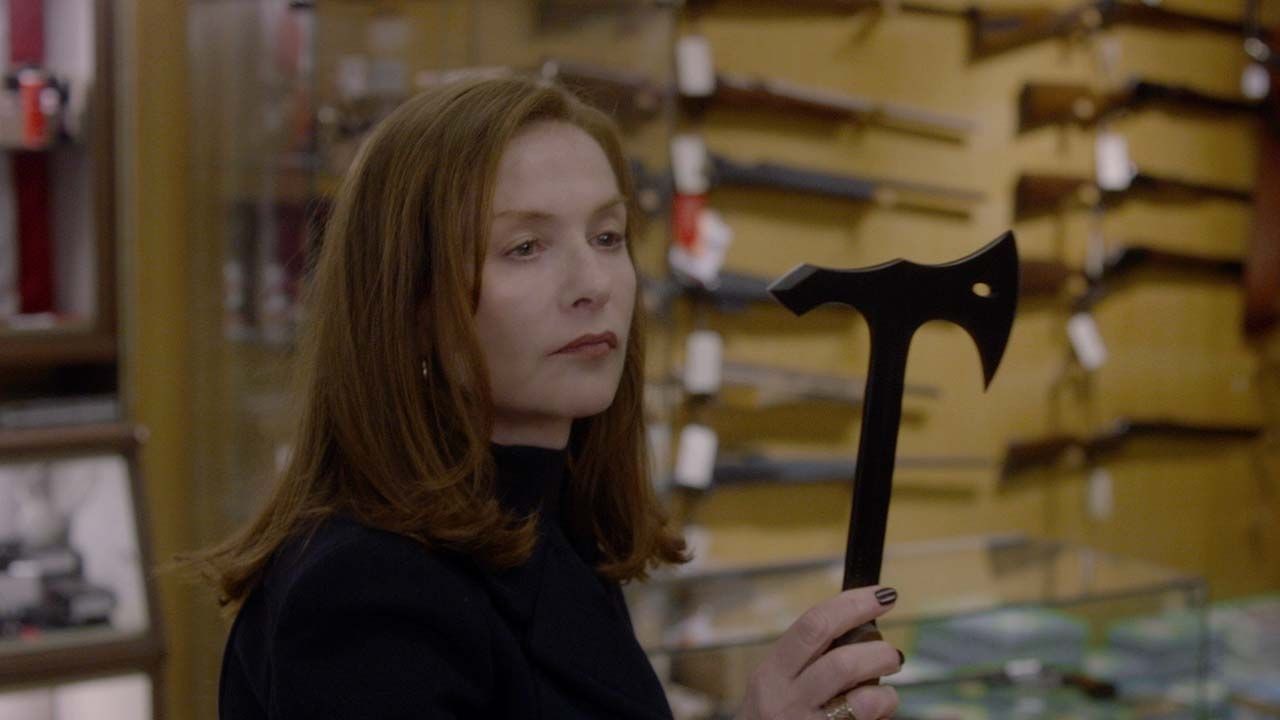Legendary French actress Isabelle Huppert’s prolific film career is matched by her stage work in Paris, New York, Sydney and London. In 2014, Huppert played Araminte in Pierre de Marivaux’s 1731 play, Les Fausses Confidences under the direction of Luc Bondy at the Odéon-Théâtre de in Paris. This adaptation of the play was filmed by day with the same actors who performed it at night.
False Confessions stars Huppert and Louis Garrel, which opens in limited release tomorrow, July 14. We spoke with Huppert about the psychology of her characters in False Confessions, Elle, and Things to Come and about working with Luc Bondy to blur the distinction between stage and screen.
What was it like working with Luc Bondy on the play and then the film?
It was a really wonderful experience because we were filming during the day and performing in the evening. The way Luc used the whole area of the theater as the movie set because you know we shot in the great entrance of the theater, we shot in the basement. In fact, we did not shoot on stage except for that one last shot. But we used the theater as a movie studio. You feel the soul of the theater. This is a well-known, classical play with so many images. We used the spirit of the play and infused it in the filming. We shot it the way he wanted to do it and it’s very original and not like it was on stage.

How did filming the play around the theater change your performance?
It did change a little bit. When you do film acting you use more faculties. I think of that long scene in the kitchen, we went a lot farther with the nuances and ambiguities and that allows you to go further. Again, Marivaux’s language is the perfect material to use in a cinematic context. Marivaux’s language is so much about what you said, but what you don’t say at the moment. When you said something but you mean something else. That works so well because cinema allows you to say something but to think something different inside and you can capture this. Marivaux’s text and language is based on that—it’s based on the unconscious. It always makes the character say something and mean something else, so cinema is the perfect medium for that.
What was it like playing Araminte, a character written in 1737? Was it any different playing it today opposed to how it would have been played when it was written?
Luc Bondy’s direction was very contemporary already in the stage version. When we started working on the play, very quickly we realized that Marivaux’s language was very contemporary and was easy to say in a very modern way, very casual way, a very cinematic way. So when we did the film version the way we acted was already there from the stage version.

Looking at your last few films that have played in America, the characters that you play in False Confessions, Things to Come, and Elle are all women who have different sorts of relationships with their desires and their sexuality. Are any of these three types of female characters easier for you to play?
As you were asking me the question I saw that there is a kind of link between these three women. I mean they are three women who want to achieve something in life and want to be free in a way. Each woman is in very different contexts and situations. But the three of them are keen to be free to live according to their desires. They are sometimes submitted to power or strength that they can’t control. So in that sense, they have something in common. In False Confessions, Marivaux exposes something very cruel that happens with my character’s maid because obviously, Araminte has the power, she has the money. Which is not the case in Elle or Things to Come; money doesn’t really interfere with taking power. In Things to Come she wants to be free and feel pleasure no one else can give her. In Elle she wants revenge and she has a plan that she wants to do on her own without any support. In Marivaux, it’s again different because the economy is linked with the feelings.
During the opening scene of False Confessions your character is doing tai chi. Is that an exercise that you do or is that something created for the character?
[Laughs] No, that was Luc’s idea. She takes care of herself like a good bourgeois woman who does yoga or tai chi, it’s like a quest for serenity. Previously I worked with Bob Wilson, the great stage director, and Bob wanted me to do tai chi because it teaches you how to center your body, have balance and to do certain movements.
False Confessions is opens in limited release on July 14. See more roll-out details here.

